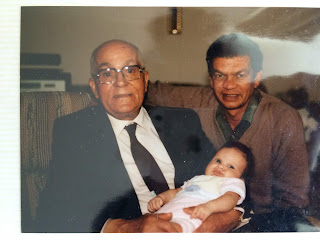How New Sexual Violence Courts Could Change Rape Trials for Women
"Lawyers, judges, prosecutors and police have all said, 'This is not a process I would want a member of my family to go through."
The courts will deal exclusively with serious sexual offences such as "rape, sexual violation, incest, sexual grooming, indecent assault, possession of child pornography and intimate visual recordings made without consent", according to a government statement.
Starting December this year, the two-year pilot will also see 20 judges up-skilled on how to best deal with the complexities of sexual abuse cases.
Research tells us that lengthy proceedings may delay recovery.
"Timeliness is clearly an issue," Chief District Court Judge Jan-Marie Doogue said. "Research tells us that lengthy proceedings may delay recovery when people have to keep fresh in their minds over a long period past distressing experiences."
The move follows recent high profile cases both within New Zealand and abroad in which victims have received the same dose of public scrutiny as offenders.
The so-called "Roastbusters" case in New Zealand – in which several underage girls were plied with alcohol and then filmed having sex – resulted in no convictions, which is believed to have led to fewer victims willing to make formal complaints.
Brenda Midson, a senior lecturer in crimes and law-of-evidence at Waikato University, found the handling of the Roastbusters case to be particularly flawed.
"The people who originally complained were largely discredited," she tells Broadly. "What's concerning is the language used, which showed up in the Police Conduct Authority complaint. The female complainants were referred to as 'girls' and the males accused as 'men'.
"The language used in the discourse of offending is powerful in preventing women from coming forward."
Read more: Why I Keep Track of Alleged Rape Cases in College Football
Anything encouraging victims to come forward without fear is a good thing, Midson says. "While a lot of work has been done over the years to make the process less harsh on the complainant, it's still pretty hard prosecuting these cases.
"What it comes down to is the accusation that the complainant is lying. The complainant is put on trial, rather than the defendant."
Cutting down the length of court cases will help victims heal, says Elisabeth McDonald, a Victoria University law associate professor and feminist legal theory expert. Sexual violence cases that have stayed in court for two years are not unheard of, she adds.
"I think over time, lawyers, judges, prosecutors and police have all said 'this is not a process I would want a member of my family to go through," McDonald tells Broadly. "That's a sad indictment on the system. It's more distressing than it needs to be."
It is estimated that 80 percent of sexual offences go unreported, with just 13 percent of those reported resulting in a conviction. McDonald says that while shortening the court process is a positive step, it's still only one thing among many holding victims back from reporting.
"They don't always recognise that what they've had happen has been harmful until later in life, or when they're talking to other people about it."
Others might also be wary of social stigma or the impact on future relationships, she points out. And for many, the offender might be in their social circle. In short, "Some people will just never report."
Broadly







Comments
Post a Comment